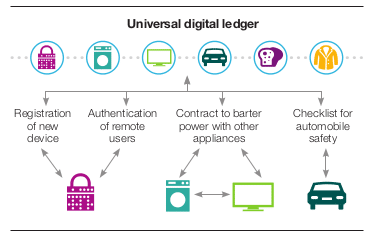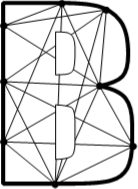

IBM has been one of the earliest companies to announce their plans of exploring blockchain. It started with a report stating that blockchain could be an elegant solution for the IoT. In January 2015, it revealed a proof-of-concept for ADEPT, a research project for IoT using P2P blockchain technology. The system will be based on IBM’S ADEPT (Autonomous Decentralized Peer-to-Peer Telemetry). The ADEPT platform consists of three elements: Etherum, Telehash and BitTorrent. With the platform, both the companies hope to bring in a set of devices which can automatically signal operational problems and are able to retrieve software updated on their own without any human interference. These devices will also be able to communicate with other nearby devices in order to facilitate battery powering and energy efficiency.
This is just the first of many applications that IBM are currently looking into. Arving Krishna, VP of IBM research, wrote a blogpost to SmarterPlanet “We believe blockchain is an extraordinarily important phenomenon, which is why IBM is deeply engaged in moving it forward […] We’re committed to help make blockchain real for our clients and for business. As always, we will explore these technologies with clients — with the goal of building a new generation of powerful platform technologies and applications that will shape the next era of business.”
I believe that mr. Krishna makes a very good argument in his article. Even though blockchain applications and tools are not ready yet for mainstream adoption, it is imperative that established corporations such as IBM, Microsoft, etc (and EVRY) takes a active role in shaping this technology for the future. There is a strong likelihood that the disruptive potential of blockchain technology will make many of today’s business processes and incumbents irrelevant in the future, but only those who are not willing to adapt and innovate.
